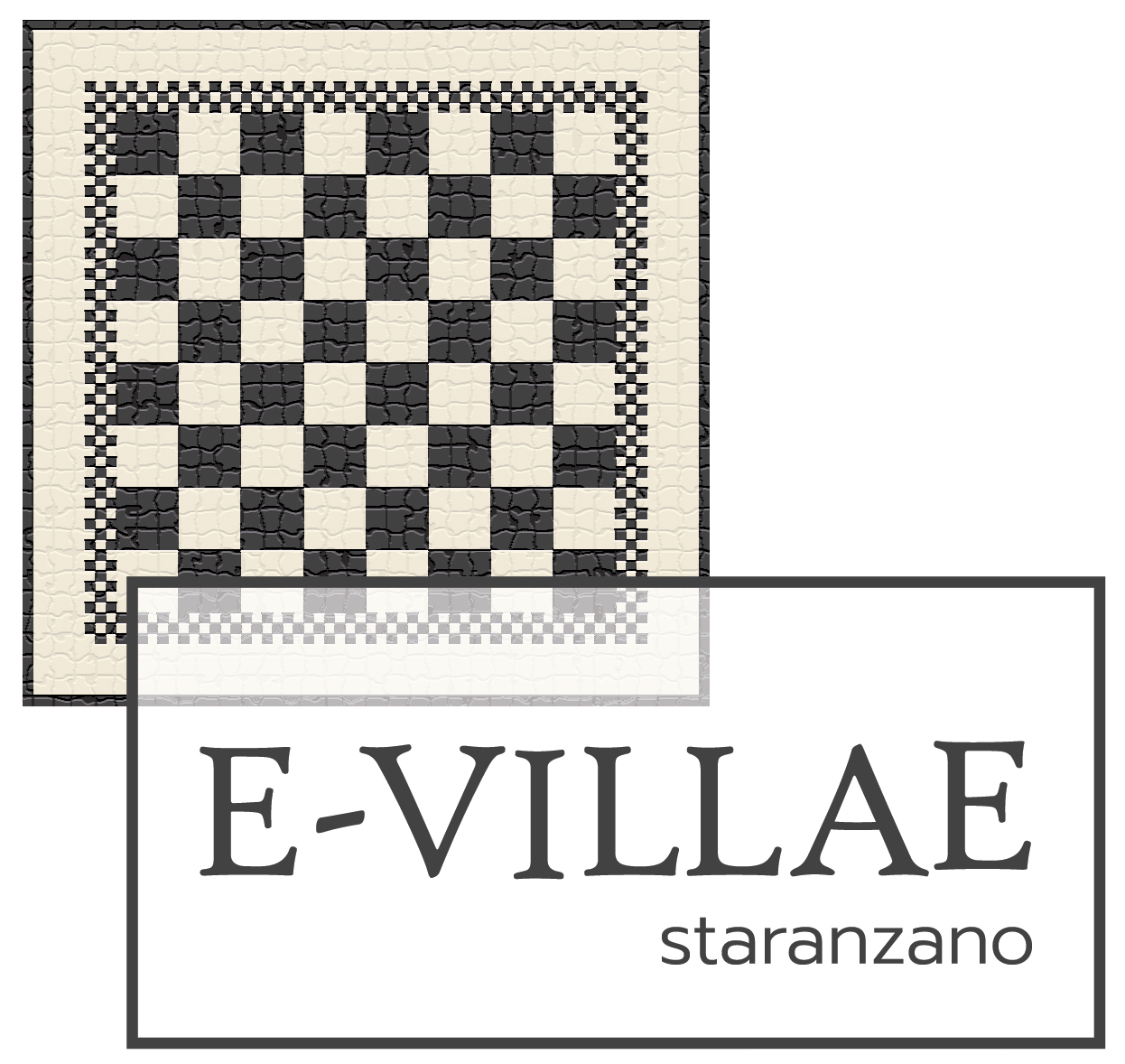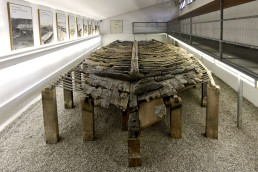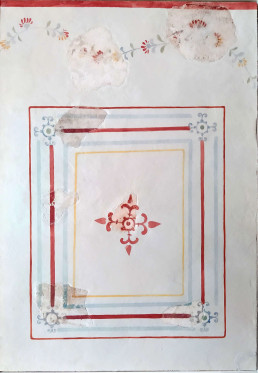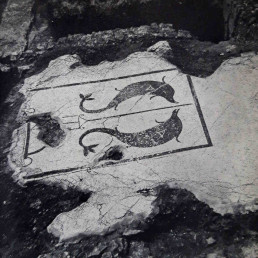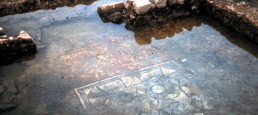The large complex, located on the island that formerly faced the mouth of the Timavo River, was investigated in the early 1970s.
It featured about 30 rooms arranged around a central courtyard.
To the north and northeast, in the residential wing, some rooms had floors decorated with black-and-white geometric mosaics; to the west was probably located the rustic part of the villa where production activities took place. The discovery of an olive press and stone elements traceable to a press seems to confirm this attribution.
A series of compartments, moreover, has been hypothetically interpreted as a thermal area. A mosaic with a central panel depicting two black dolphins facing a trident was found here.
These rooms opened onto a courtyard overlooking the lagoon; a boat was exceptionally found nearby. It, due to the construction technique employed ("mortise and tenon") was intended for use on the open sea.
Of the boat, datable like the residential building between the second half of the 1st century B.C. and the 2nd century A.D., the bottom was preserved, almost in its entirety (11 x 3.8 meters).
It is possible that it was used for the commercial distribution of the villa's products (oil, wine, fish sauces?). A number of everyday objects that were used on board were found inside the hull: ceramic vessels, a wicker basket and a wooden vessel containing grapes.
The wreck is now in the National Archaeological Museum in Aquileia.
